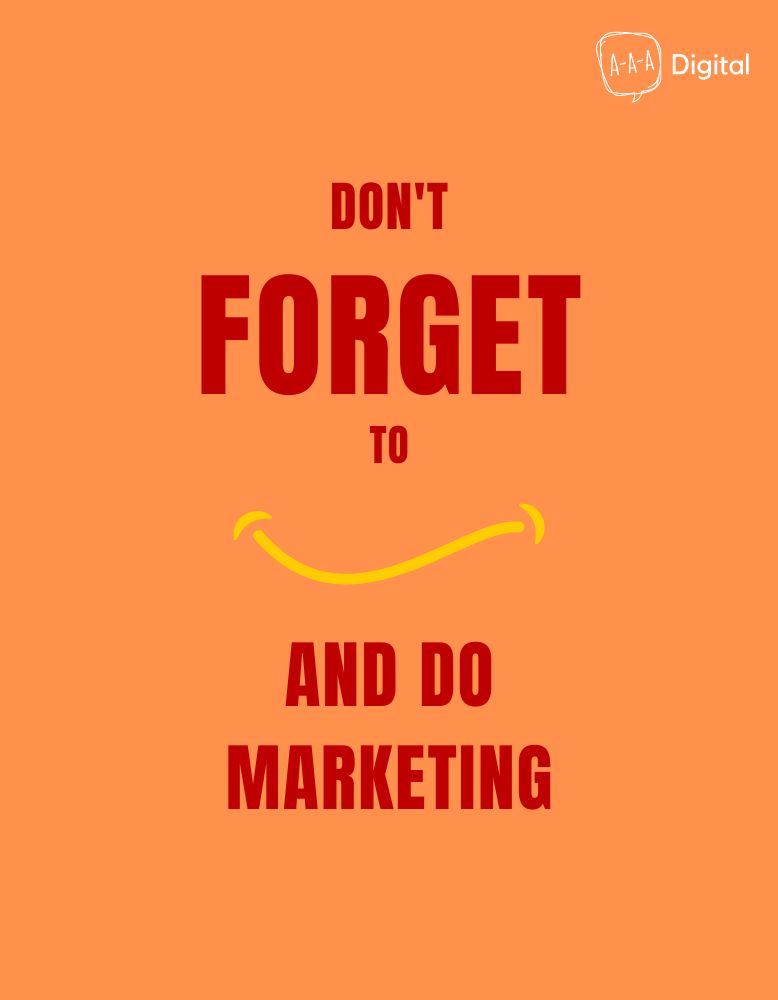As a business owner, you know how important it is to continuously market your products or services to your target audience. However, many companies make the mistake of cutting back on marketing efforts when times get tough, whether it’s due to budget constraints or uncertain economic conditions. But, in reality, this is the worst thing you can do. In fact, it’s during these times that marketing efforts are needed the most. In this article, we’ll discuss why you shouldn’t stop marketing and provide examples of successful marketing campaigns that took place during challenging times.
Why You Shouldn’t Stop Marketing
Maintain Brand Awareness
One of the most important reasons to continue marketing during difficult times is to maintain brand awareness. If you cut back on your marketing efforts, people may forget about your brand and turn to your competitors. It’s crucial to stay top-of-mind with your audience so that when they’re ready to make a purchase, they think of your brand first.
Attract New Customers
Marketing is also important for attracting new customers. Even during tough times, there are people out there who are still in need of your products or services. By continuing to market, you can reach these potential customers and win their business.

Build Trust
In uncertain times, people want to do business with companies they trust. By continuing to market and communicate with your audience, you can build and maintain trust. When people trust your brand, they’re more likely to do business with you now and in the future.
Notes from the author…
Of course, Don’t Stop Marketing simply doesn’t mean that you should put all your money into marketing. The idea here is to have a winning marketing strategy for your small business planned before you deep dive the right way. So, even if you go all-in on your budgets, you won’t fail big.
Examples of Successful Marketing Campaigns During Tough Times
Coca-Cola’s “Share a Coke” Campaign
During the 2008 recession, Coca-Cola launched its “Share a Coke” campaign in Australia. The campaign featured Coca-Cola bottles and cans with people’s names on them, encouraging people to share a Coke with friends and loved ones. The campaign was a huge success, with Coca-Cola seeing a 7% increase in sales and a 2% increase in market share.
Domino’s “Pizza Turnaround” Campaign
In 2009, Domino’s Pizza launched its “Pizza Turnaround” campaign after receiving negative feedback on the taste of its pizza. The campaign featured commercials that acknowledged the negative feedback and showed the steps Domino’s was taking to improve its pizza.
The campaign was a huge success, with Domino’s seeing a 14.3% increase in sales in the first quarter of the campaign.
Airbnb’s “Live There” Campaign
In 2016, Airbnb launched its “Live There” campaign after facing backlash from residents in popular tourist destinations. The campaign encouraged travelers to live like locals and experience destinations like a local would. The campaign was a huge success, with Airbnb seeing a 40% increase in bookings during the campaign.
Here’s more Reason Why You Should Invest More in SEO, now than ever:
- The top five search results on Google receive 54.4% of all clicks (Backlinko, 2022).
- 93% of all online experiences begin with a search engine (WebFX 2023).
- 75% of people never scroll past the first page of search results (HubSpot, 2021).
- Google owns 93.37% of the global search engine market share (StatCounter, 2023).
- Search engine advertising is the most popular digital advertising tactic, with 72% of marketers using it (HubSpot, 2022).
- The average click-through rate (CTR) for a paid search ad on Google is 3.17% for the search network and 0.46% for the display network (Wordstream, 2022).
- 51% of smartphone users have discovered a new company or product while searching on their phone (Google, 2015).
Questions You Asked, We answered
Why is it important to continue marketing during tough times?
Continuing to market during tough times can help maintain brand awareness, attract new customers, and build trust with your audience. By staying top-of-mind with your customers, you can position your business for success both now and in the future.
How can businesses continue marketing when they have limited resources?
Businesses with limited resources can still continue marketing by focusing on low-cost or no-cost tactics, such as social media marketing, email marketing, content marketing, or referral marketing. It’s also important to prioritize marketing efforts based on their potential return on investment (ROI).
What are some examples of successful marketing campaigns during tough times?
Examples of successful marketing campaigns during tough times include Coca-Cola’s “Share a Coke” campaign during the 2008 recession, Domino’s Pizza’s “Pizza Turnaround” campaign after receiving negative feedback on their pizza, and Airbnb’s “Live There” campaign after facing backlash from residents in popular tourist destinations. These campaigns all focused on building trust with their audience and providing value to their customers.
What are some common mistakes businesses make when cutting back on marketing?
One common mistake businesses make when cutting back on marketing is completely stopping their marketing efforts, which can result in a loss of brand awareness and customers. Another mistake is cutting back on marketing too much, which can make it difficult to attract new customers and maintain existing ones. It’s important for businesses to find a balance between reducing costs and maintaining a consistent marketing presence.
How can businesses measure the success of their marketing efforts?
Businesses can measure the success of their marketing efforts by tracking key performance indicators (KPIs) such as website traffic, leads generated, conversion rates, customer acquisition cost (CAC), and return on investment (ROI). It’s important to set specific goals and regularly review and adjust marketing strategies based on performance data.
How can businesses adapt their marketing strategies during a crisis or difficult time?
During a crisis or difficult time, businesses can adapt their marketing strategies by focusing on empathy and providing value to their customers. This may involve shifting messaging to be more sensitive to current events, offering discounts or promotions to incentivize purchases, or providing helpful resources or content to customers. It’s also important to monitor and respond to customer feedback and adjust strategies accordingly.
What role does digital marketing play in continuing marketing efforts during tough times?
Digital marketing can be a cost-effective way for businesses to continue marketing during tough times. Tactics such as social media marketing, email marketing, content marketing, and search engine marketing can help businesses maintain visibility with their audience and attract new customers. Additionally, digital marketing allows for more targeted and measurable marketing efforts, making it easier to track ROI and adjust strategies accordingly.
Conclusion
Marketing is a crucial part of any business, and it’s important to continue marketing even during challenging times. By maintaining brand awareness, attracting new customers, and building trust, you can set your business up for success both now and in the future. Take inspiration from successful marketing campaigns like Coca-Cola’s “Share a Coke,” Domino’s “Pizza Turnaround,” and Airbnb’s “Live There” to help guide your own marketing efforts during tough times.
Hope you found something helpful in this blog. Stick around with AAA Digital for more such valuable insights like this.
Sources for Stats:
- Backlinko. (2022). We Analyzed 4 Million Google Search Results. Here’s What We Learned About Organic CTRS. Retrived from https://backlinko.com/google-ctr-stats
- WebFX. (2023). SEO Stats. Retrieved from https://www.webfx.com/seo/statistics/
- HubSpot. (2022). The ultimate list of marketing statistics for 2022. Retrieved from https://www.hubspot.com/marketing-statistics
- StatCounter. (2021). Search engine market share worldwide. Retrieved from https://gs.statcounter.com/search-engine-market-share
- Wordstream. (2022). Google Ads industry benchmarks for 2022. Retrieved from https://www.wordstream.com/blog/ws/2022/05/18/search-advertising-benchmarks
- Google. (2015). I-Want-To-Go Moments: From Search to Store. Retrieved from https://www.thinkwithgoogle.com/consumer-insights/consumer-journey/i-want-to-go-micro-moments/



